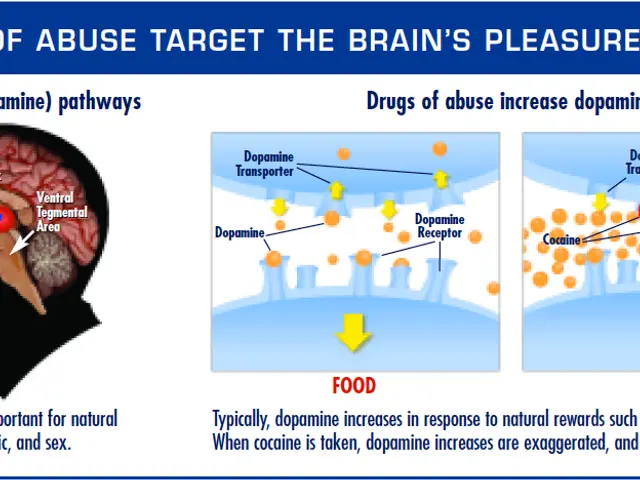Allergies may potentially lead to fever or ailments similar to the flu.
## Understanding Allergies: Separating Symptoms from Causes
Allergies, a common health issue affecting millions worldwide, often present with a series of distinctive symptoms. However, it is essential to understand that allergies have their unique causes and do not share the same roots as certain other common illnesses, such as colds or the flu.
### Allergies and Fever
One common misconception is that allergies can cause a fever. **In reality, allergies do not cause fever.** Allergic reactions, such as hay fever, allergic rhinitis, or food allergies, typically trigger symptoms like sneezing, itchy eyes, a runny nose, and nasal congestion.
If a fever is present along with allergy symptoms, it is more likely to be the result of an infection, such as a cold, flu, or sinus infection. However, it is crucial to consult a healthcare provider to rule out infections, especially if the fever persists.
### Allergies and Fatigue
While allergies do not usually cause fever, they can lead to extreme fatigue. Chronic nasal congestion and difficulty breathing through the nose can disrupt sleep quality, leading to daytime tiredness. Additionally, the body's immune responses to allergens can release various chemicals, such as histamine, which might contribute to a general feeling of malaise or fatigue.
### Seeking Medical Advice
If you experience fever or severe fatigue alongside allergy symptoms, it is essential to consult a healthcare provider to rule out infections and other potential causes. Persistent or extreme fatigue should also be evaluated to exclude other causes such as infections, sleep disorders, or underlying health conditions.
### Effective Allergy Management
Allergy treatments aim to alleviate symptoms and prevent reactions. Wearing an allergy mask can prevent a person from breathing in allergens. An allergist can perform tests like skin prick tests or blood tests to determine if a person is allergic to a specific substance.
For those with severe allergies, immunotherapy may be beneficial. Immunotherapy involves injecting increasing amounts of allergens to de-sensitize the body's immune response. However, immunotherapy injections must be prescribed by a doctor.
### Preventing Allergy Symptoms
Reducing time spent outdoors when pollen, ragweed, or mold counts are high can help reduce allergy symptoms. Using air conditioning and keeping windows closed can keep pollen and other airborne allergens from coming into the home. Allergies do not usually cause body aches, pains, or extreme exhaustion, so it is essential to differentiate allergy symptoms from those of other illnesses.
In conclusion, understanding the differences between allergy symptoms and the causes of other illnesses, such as colds and the flu, is crucial for effective diagnosis and treatment. If you have any questions or need further information, feel free to ask!
- Allergies, like hay fever and allergic rhinitis, are distinct from common illnesses such as the common cold or flu, despite sharing some symptoms.
- Unlike allergies, infections like colds or flu often cause fever, while allergies do not.
- In a case where fever is present with allergic symptoms, it's more probable that an infection is present, and a healthcare provider's consultation is advised.
- Allergies can cause fatigue, particularly due to disrupted sleep quality from chronic nasal congestion.
- The body's immune responses to allergens may release chemicals like histamine, contributing to general malaise or fatigue.
- If fever or severe fatigue persists alongside allergy symptoms, it's necessary to consult a healthcare provider to rule out infections, sleep disorders, or underlying health conditions.
- In cases of persistent or extreme fatigue, additional causes like infections, sleep disorders, or underlying health conditions must be evaluated.
- Allergies are individually diagnosed, with skin prick tests or blood tests performed by an allergist to identify specific allergens.
- Immunotherapy, prescribed by a doctor, may prove beneficial for those with severe allergies by gradually desensitizing the body's immune response.
- A key preventive measure for reducing allergy symptoms includes avoiding prolonged outdoor exposure during high pollen, ragweed, or mold counts.
- Reducing indoor allergens can be achieved by using air conditioning and keeping windows closed during pollen season.
- Obesity and atopic dermatitis are not typically related to allergies but may share some symptoms, such as skin dryness or discomfort.
- Migraines and asthma are not usually caused by allergies but can share triggers, such as certain foods or pollen.
- Mold exposure is not an allergy but can cause respiratory issues like COPD or asthma attacks and skin reactions like dermatitis.
- Diabetes, Alzheimer's disease, and Multiple Sclerosis are not related to allergies but are serious health concerns that require professional medical attention.
- The macular degeneration is an eye disease related to aging and not an allergy.
- Crohn's disease is an inflammatory bowel disease not linked to allergies but may share some symptoms like abdominal pain and discomfort.
- While allergies can contribute to worsening symptoms, they are not the primary cause of mental health issues like depression, anxiety, or stress.
- Skin-care and sexual health are not directly related to allergies, but adverse reactions to products or infections can cause discomfort or complications.
- Workplace wellness initiatives, health and wellness programs, fitness and exercise routines, and nutritional guidance can complement allergy management strategies for overall health and disease prevention.








